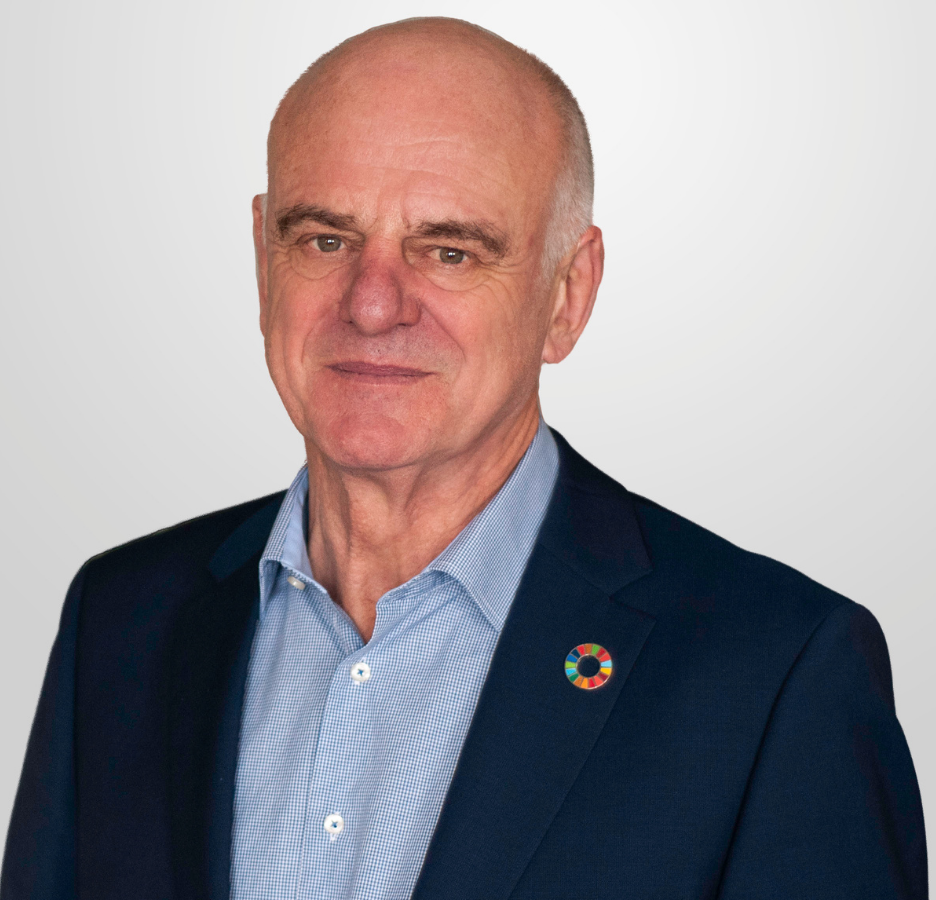Climate change is increasingly being recognized as a human health emergency, and with its impact evident in hospital and clinic waiting rooms every day, it adds an increasing burden to already stretched health systems.
With 170 million people working in the healthcare globally, the health sector could lead on climate change, and there is motivation within the profession to act. This is the message of a new report soon to be released by the World Innovation Summit for Health (WISH) titled Health in the Climate Crisis: A Guide for Health Leaders.
The new WISH 2020 report, benefitting from a broad advisory group of experts and leaders across the environment, health and healthcare fields, is being produced in partnership with Imperial College London, under the leadership of Dr. David Nabarro, co-director of the Imperial College Institute of Global Health Innovation. Dr. Nabarro previously served as special adviser to the United Nations (UN) Secretary-General on the 2030 Agenda for Sustainable Development and climate change, and in March was appointed as the World Health Organization (WHO) Special Envoy on COVID-19.

Climate change is one of the primary themes of the virtual gathering of global health leaders from November 15 to 19 – WISH 2020 – and several thematic reports highlighting its challenges for healthcare will be released during the summit.
The report’s twin imperatives, to make healthcare systems resilient to climate change and to reduce their role in causing it, recognizes that even high-income health systems are insufficiently prepared to respond to major climate-related shocks, and low- and middle-income countries are especially fragile. Additionally, even the best adaptation measures will be insufficient if the scale of the threat from climate change is not reduced.
The authors note that with the size of its workforce, and rising health costs pushing spending to around $8 trillion globally, the healthcare profession has the market power to drive change directly – especially when allied with other sectors. ‘Climate-smart’ healthcare can, in turn, reduce the sector’s 4.6% share of global emissions – to make systems greener, more resilient, and of higher quality.
Presenting an ‘index card’ of high-impact recommendations, the report urges governments to put health and climate leaders at the heart of post-COVID recovery plans and stimulus packages, to ensure that the recovery accelerates the transition to health-promoting, low-carbon societies.
Emphasizing the timeliness of the discussions, Dr. Nabarro said: “Our physical and mental health are being affected by climate change all over the world. The more I look into how climate change is affecting people, the more I realize that health workers have a vital role. They can act as advocates – drawing on their own authority and legitimacy as health workers and connecting with people in different sectors in order to collectively ensure that people’s health is preserved and indeed optimized despite the fact that climate change causes massive challenges. We hope that the report on Climate Change and Health discussed during WISH 2020 will be of value to the health professionals for the foreseeable future.
“We’d love it if as many health professionals as possible could have the ‘index card’ in their pockets and look at the suggestions for what they, as health workers, can do and also the suggestions for how they can work with others to bring about change, change in relation to climate and change in relation to other tricky issues that collectively we have to navigate in order to ensure sustainable and equitable futures for all.”
In keeping with WISH’s emphasis on evidence-based, policy-oriented research, several influential reports will be released in November to align with the summit’s varied research themes. WISH has partnered with the BMJ to commission two collections of peer reviewed articles on the effects of climate change on infectious diseases and the growing challenges of dry cities. These will steer discussions in the ‘Climate Change & Communicable Diseases’ forum co-chaired by Prof. Rachel Lowe and Prof. Jeremy Hess. The report for the ‘Healthy Dry Cities’ forum, co-chaired by Prof. Howard Frumkin and Dr. Maitreyi Das, considers how the health challenges faced by dry cities – and the rest of the world – will continue to grow amid the further effects of climate change. This year, the biennial WISH summit is being held under the theme of ‘One World Our Health’, to emphasize WISH’s vision, as Qatar Foundation’s global health initiative, of striving for the common goal of creating a healthier world.
